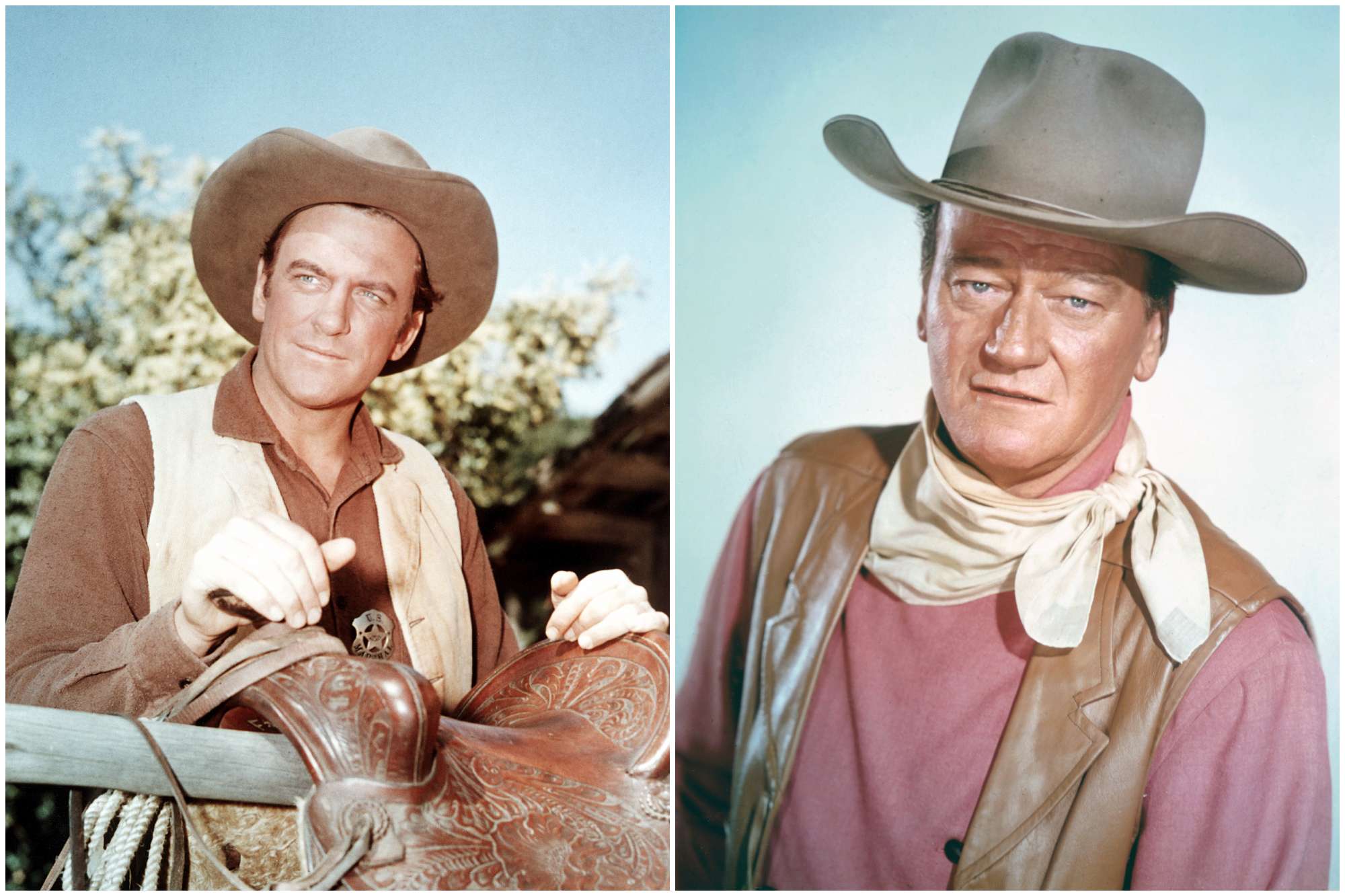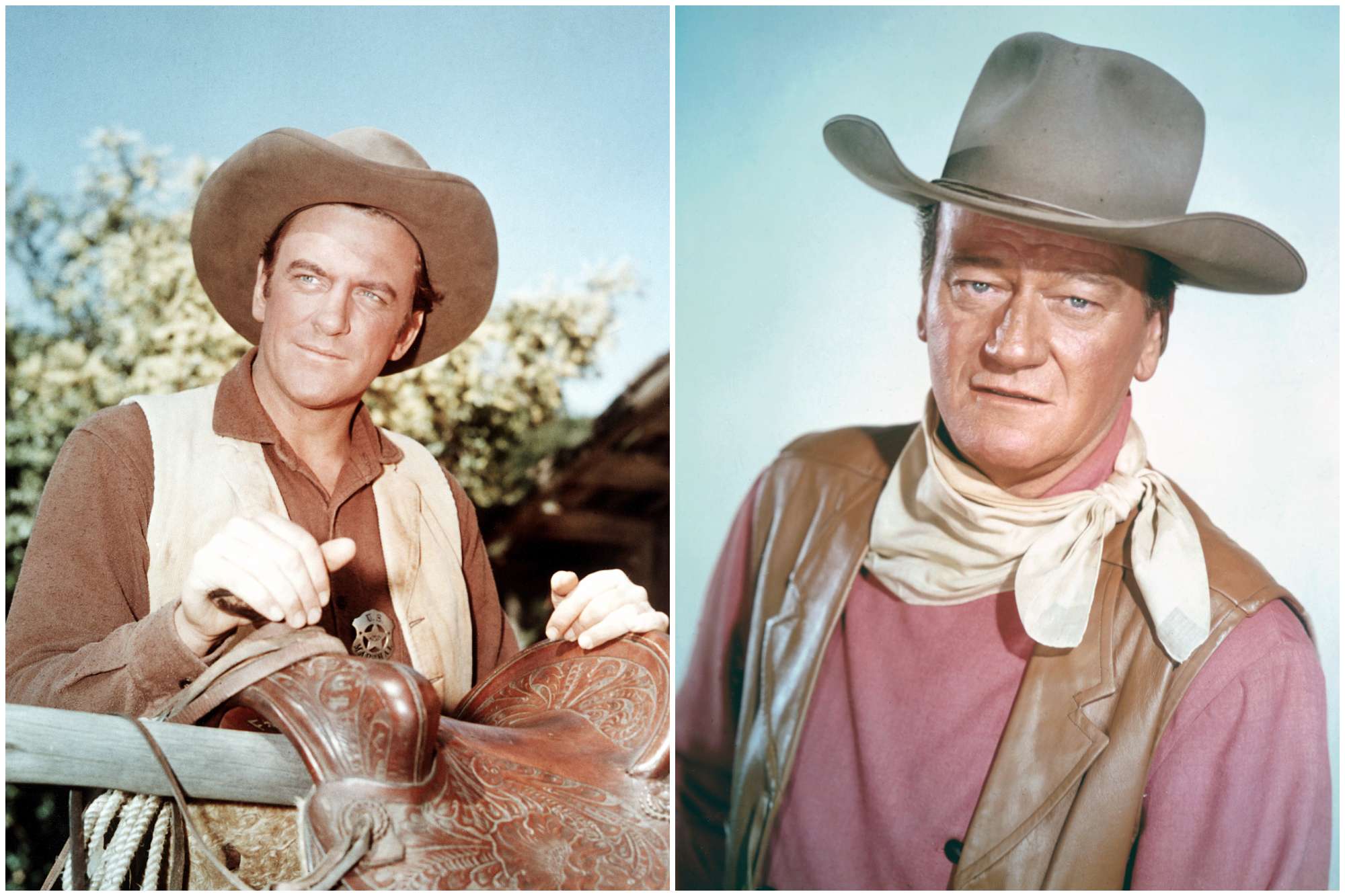
Why ‘Gunsmoke’ Actor James Arness Was the John Wayne of Television
Movie star John Wayne and television actor James Arness were Western icons, but their images grew in vastly different directions. Some viewed Wayne as an American hero, while others criticized him for not serving in World War II during the draft. However, Wayne made several classics, such as The Quiet Man and The Searchers, in collaborations with legendary filmmakers like John Ford.
Meanwhile, Arness served during WWII, earning a Bronze Star Medal and a Purple Heart. He made a name for himself playing U.S. Marshal Matt Dillon on Gunsmoke, one of the longest-running shows ever to air on television with 20 seasons. He had a much more positive legacy than Wayne left after his death, even though the movie star was once the television actor’s employer before they became good friends.
Nevertheless, Arness was essentially the Wayne of television.
James Arness and John Wayne were underestimated

Hollywood didn’t necessarily welcome Arness and Wayne in with open arms. They both dealt with their own share of difficulties before landing their respective breakout roles that allowed their acting careers to blossom the way they did.
Arness changed his real last name from “Aurness,” while Wayne changed his name from Marion Morrison to pursue stardom in Hollywood.
Wayne started in the prop department, earning his first leading role in 1930’s The Big Trail. However, it was a box-office disaster that landed him in B-movies. It wasn’t until 1939’s Stagecoach that he rose to fame.
Meanwhile, Arness made his film debut with 1947’s The Farmer’s Daughter, but he also played the titular character in 1951’s The Thing from Another World. Otherwise, he had difficulty landing roles because of his height of 6’7,” which intimidated other male actors.
Both actors were underestimated, but they managed to rise above. They refused to give up, finally managing to discover their place in entertainment that allowed them to thrive.
James Arness and John Wayne represented an era of Western storytelling
Arness and Wayne hit their stride with roles that will always define their careers. Gunsmoke landed at the top of the ratings for years, marking its leading man the network’s most valuable asset. The show offered a type of “adult Western” that wasn’t commonplace, tackling some serious themes, but it didn’t necessarily alienate younger viewers. The show was an ensemble that originally consisted of Dennis Weaver, Milburn Stone, and Amanda Blake, but Arness shined in a way that defined the genre.
Meanwhile, Wayne reinvented “fighting dirty” in Hollywood through his Western movies. He believed that protagonists could dish back what they take. Wayne considered his characters “real men,” refusing to back down when threatened. He pushed the genre forward with Red River, Rio Bravo, True Grit, and The Man Who Shot Liberty Valance, among others.
Gunsmoke and Stagecoach both showed how Wayne and Arness had the ability to stand out from an ensemble and shine, displaying true star power. They both represented some of the most legendary cowboys ever to hit the small or silver screen.
They stood for a unique sense of heroism
Wayne had a firm definition of what made an American hero, refusing to accept roles that went against it. He turned down classic roles in movies such as High Noon, All the King’s Men, and Blazing Saddles. He had no problem speaking out about his political beliefs, regularly slamming communism. These ideals found their way into some of his films, including The Green Berets and The Alamo.
Meanwhile, Arness had his own ideals of freedom. He also had conservative political beliefs, but he didn’t bring them into his work to the degree of the Western movie star. Arness played Matt on Gunsmoke with his own sense of strength in his form of masculinity, but he was also regularly knocked down a few pegs every now and again to ground the character. He had heroism in vulnerability, as well as in strength.


